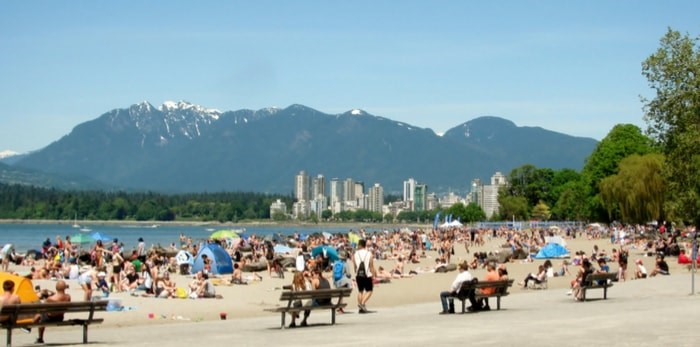 Photo: Irra/Shutterstock.com
Photo: Irra/Shutterstock.com
The Â鶹´«Ã½Ó³»weather forecast calls for plenty of sun in the coming days, but July has seemed a bit cooler than June was in the Lower Mainland.
Back in April, Environment Canada told Â鶹´«Ã½Ó³» that the Lower Mainland would likely see above average temperatures in late spring and into summer. Further, they noted that the summer season would likely be warmer overall.
V.I.A. spoke to Bobby Sekhon, Meteorologist, Environment Canada, about how well the early summer forecast has held up, and what he predicts the rest of the summer will be like.
"June saw slightly above average temperatures for Metro Â鶹´«Ã½Ó³»- temperatures were about 0.7 degrees higher," he describes. "But July isn't any cooler than usual - it is actually bang-on average - so the summer has actually been warmer overall so far."
Sekhon explains how July 2018 was about a degree higher than usual, while July 2017 was about average. July 2016 was also about a degree higher than mean average.
"2012 was cooler than the climatological average for July, which is 18 degrees. That year the month saw an average of 17.7 degrees."
According to Sekhon, the Metro Â鶹´«Ã½Ó³»region had a warmer than average June this year and has seen more typical June weather in July. However, he adds that temperatures are expected to warm up this week, and that the rest of the summer is expected to see above average temperatures. He also clarifies that the department calculates the months of June, July and August in their summer forecasting, but not September.
"We are still expecting above average temperatures overall for the summer season. Also, we expect to see daily highs of 23 degrees in the coming week."
As a result of the rising temperatures, Sekhon advises British Columbians to practice proper fire safety and prevention. Most wildfires are caused by human carelessness and are therefore preventable.
Residents of the Lower Mainland should also have a plan in place for wildfire smoke events before they happen.


